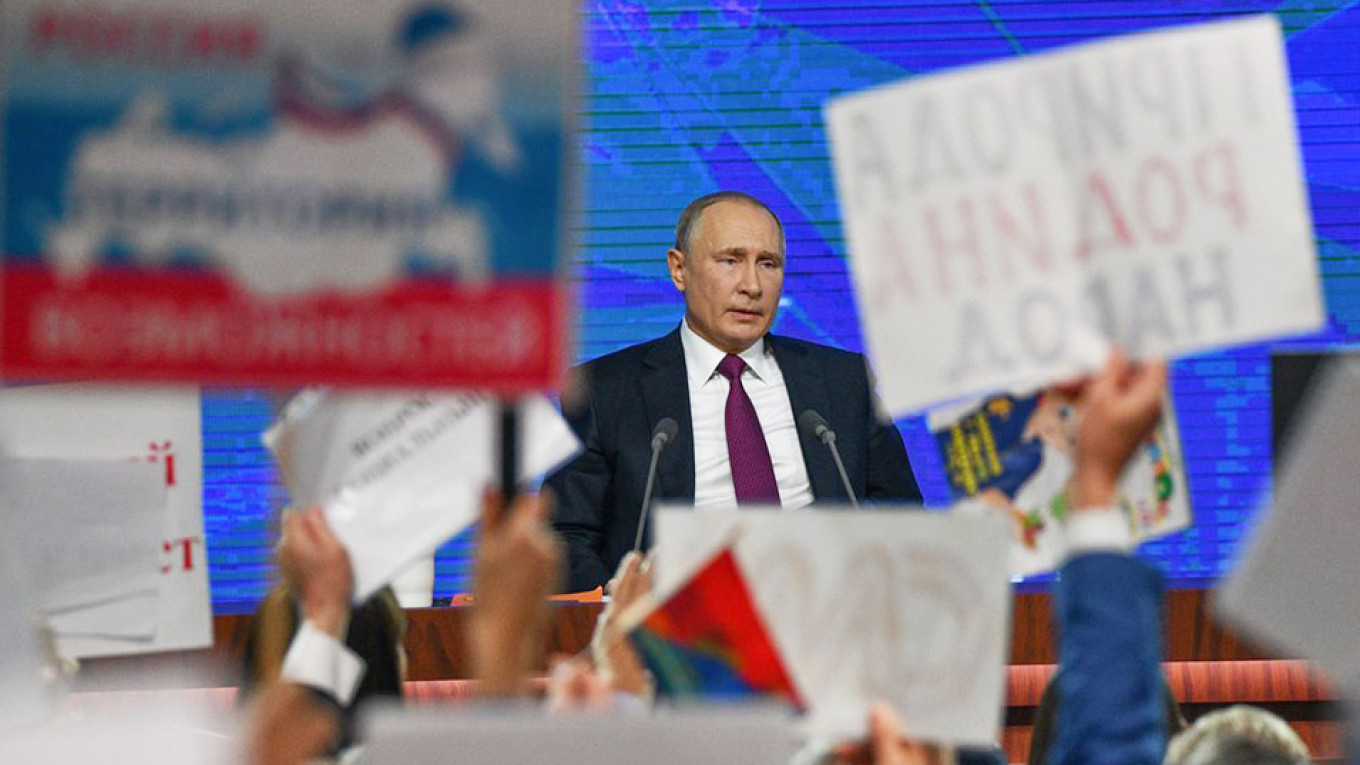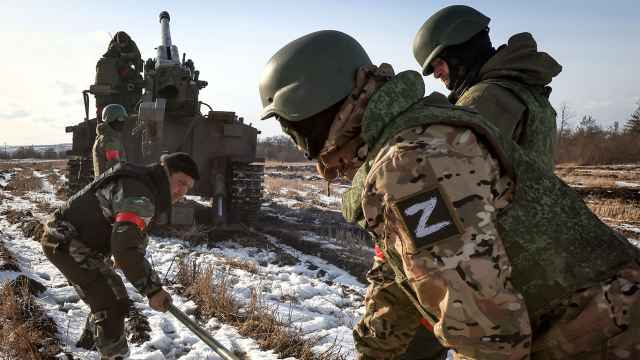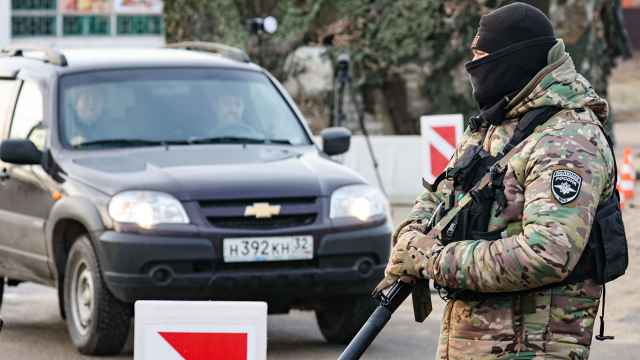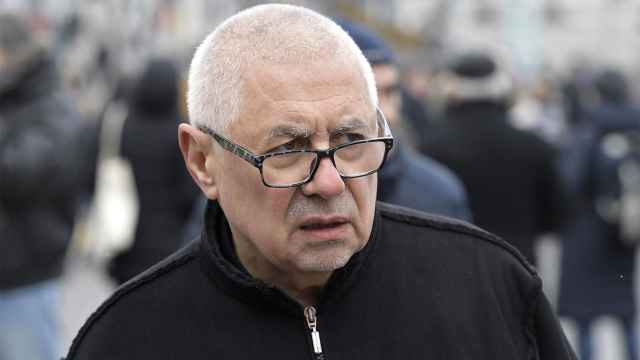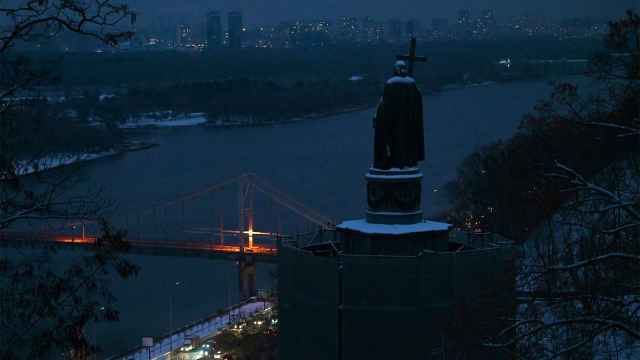The recent demonstrations in Moscow and the general growth of protest activity across the whole of Russia have forced analysts to take a closer look at the range of factors behind this new political reality.
The state of Russian society, especially the youth, the falling ratings of Vladimir Putin, the nature of voting, the divergence between the agendas of the state and the people — all of this has once again come under the spotlight.
In addition to the above, however, another key factor is the decline of domestic policy as it has become synonymous with national security.
Whoever is in charge of security now also determines domestic policy.
One of the main precursors of the current crisis was Vladimir Putin’s decision in 2016 to appoint new domestic policy “curators,” or chiefs.
Vyacheslav Volodin was replaced by technocrat Sergey Kiriyenko, which led to a rapid decline in domestic policy activity. Increasingly, Kiriyenko replaced it with so-called “administrative politics,” a new system that is devoid of ideology in which domestic politics is managed as a company.
The former chief of domestic policy Vladislav Surkov had focused much of his efforts on introducing state concepts like the notorious “sovereign democracy” and making domestic policy “intellectual” and complex. He also closely tried to manage the Russian youth.
Less adept at generating new ideas, Vyacheslav Volodin had nonetheless promoted manageable, “safe” political competition, and bargained with the so-called “systemic opposition” — political parties widely perceived as Kremlin-friendly.
A firm believer in the divide and conquer strategy, Volodin also pitted the ruling United Russia party against the government with such zeal that Putin became irked by his contentious style of governance.
Different as they were in style, Surkov and Volodin could both be said to have engaged in “politicization”: Both had worked to create conditions for the channeling and uptake of political trends in the country.
The appointment of Sergey Kiriyenko heralded the beginning of a new era of corporate domestic policy, which in reality resulted in the decline of domestic policy.
The shift was due to a demand, clearly articulated by Vladimir Putin himself, that all “political” activity be ceased. (by political, Putin meant anything overly contentious, polycentric, unclear or simply uncomfortable)
The “political” cannot be managed or controlled: It must be interacted with, and this was something the president had never been able to do.
Thus, Putin needed an aide who could manage the domestic policy scene as an administrator. The consequences quickly became evident, with relations between the presidential administration and the so-called “systemic opposition” hitting a crisis point.
As the Communist Party was left to its own devices, a number of conflicts ensued, including that over the fate of former communist presidential candidate Pavel Grudinin.
The far-right Liberal Democratic Party of Russia loyalty, meanwhile, was taken for granted, and A Just Russia, with its deplorable finances and poor ratings, was simply ignored altogether.
Even United Russia, with which Vyacheslav Volodin still wields significant influence, suffered.
Not only was the party forced to take all the blame for the pension reform, but the Kremlin also began more often to support independent candidates in elections.
The upcoming city council elections, for instance, does not include a single candidate from the ruling party.
The fate of United Russia today appears increasingly uncertain, and while Putin continues to view it as the linchpin of the regime, seeing no need for reform, no one today is working on its development.
Within the party, concern and fear of the future are growing.
These worries seem to be well-founded: Logically, the Kremlin indeed appears likely to oust United Russia deputies from the State Duma, and possibly even ditch party lists for elections in favor of a single-mandate system.
Governors have also been affected by this de-politicization, as politicians began to be replaced by young technocrats.
At the same time, domestic policy has become less ideological. Under Kiriyenko, domestic policymakers began to distance themselves from clear values, whether liberal or conservative.
These were replaced with strict methodology — politicians are now evaluated using Western-styled KPI ratings, role-playing games and training workshops.
As a result of all this, the political space has been left with no one to manage it. The issue here is not so much whether the political arena should necessarily be managed by anyone. It is more about the shifts in Putin’s regime itself, since from the very outset, its continued smooth functioning has largely been due to these “curators.”
Drastically shrunk, the functions of the domestic policy bloc are now limited to a few insiders within the presidential administration.
Among its responsibilities are selecting candidates for governor posts and growing a base of competent managers. It should be stressed that absolutely no one in the Kremlin is currently even working on mid-level political strategy, or on optimizing the United Russia Party.
Such things are simply not part of Kiriyenko’s methodological approach.
Neither is there any clear policy line with regards to the actual non-systemic opposition, the very existence of which as a political subject is simply denied.
It is hardly a secret that the domestic policy “curators” were extremely unhappy with Moscow mayor Sergei Sobyanin, who has been held entirely responsible for this summer’s political crisis in Moscow. Yet what would Kiriyenko’s vision look like, and what tactics would the administration be using if Moscow had not been entrusted to Sobyanin?
On the other hand, observers are constantly talking about a rebellion by the so-called “siloviki”— officials with ties to law enforcement. The exit of the civilian “curators" left a vacuum, which has been eagerly filled by actors from the state security services.
According to unverified accounts, in late July Putin held a meeting at which security service heavyweights Nikolai Patrushev and Alexander Bortnikov “explained” to Putin that the Moscow protests were an attempt to export a foreign-led “color revolution” to Russia. The management of the Presidential Administration got into trouble with Putin and several mid-level staffers from the foreign policy bloc were sacked.
The return of civilian political technologists now looks unlikely.
Having relinquished the initiative, they will find it difficult, if not impossible, to recover.
And this is no siloviki rebellion. This is the capitulation of the civil contingent within the authorities, a domestic policy management crisis, the consequences of which will be far greater than those of the current events in Moscow.
A Message from The Moscow Times:
Dear readers,
We are facing unprecedented challenges. Russia's Prosecutor General's Office has designated The Moscow Times as an "undesirable" organization, criminalizing our work and putting our staff at risk of prosecution. This follows our earlier unjust labeling as a "foreign agent."
These actions are direct attempts to silence independent journalism in Russia. The authorities claim our work "discredits the decisions of the Russian leadership." We see things differently: we strive to provide accurate, unbiased reporting on Russia.
We, the journalists of The Moscow Times, refuse to be silenced. But to continue our work, we need your help.
Your support, no matter how small, makes a world of difference. If you can, please support us monthly starting from just $2. It's quick to set up, and every contribution makes a significant impact.
By supporting The Moscow Times, you're defending open, independent journalism in the face of repression. Thank you for standing with us.
Remind me later.



